Alopecia is a condition that may raise concerns about hair loss, especially if you haven't experienced it before. There are multiple types and causes of hair loss. It is important to know what type of pain you may be experiencing and what treatments are available. In this article, you can discover more about this condition, the most prominent ways alopecia treatment in Turkey, alopecia treatment cost and how we can help you at the Medicsey.
Table of Contents
What is alopecia?
Alopecia is a medical condition that causes sudden and unexpected hair loss, in which circular or oval patches appear on the scalp or in other areas of the body. This condition is an autoimmune disease in which the immune system accidentally attacks hair follicles. The disease is classified as a multigenic disease, which means that having a parent increases the likelihood that children will also develop it. And it is important to note that this disease is not contagious. In this article, we will shed light on the causes of alopecia and methods of treatment by dermatologists who specialize in treating alopecia in Turkey.
Types of alopecia
- Alopecia areata
Alopecia areata is a condition characterized by the appearance of round or oval spots. These spots usually appear on the scalp, but they can also appear on any other area of the body that has hair. Alopecia can turn into other types of alopecia, but it usually remains in the form of spots.
- Persistent alopecia
It is considered a type of alopecia, as it lasts for a long time. - Totalis alopecia
Total alopecia is a type of alopecia in which the patient loses all hair from the scalp. It affects about 5% of patients. - Global alopecia
Alopecia is a dangerous type that negatively affects the patient's psyche, as the patient loses all his body hair, including head and face hair. Global alopecia affects about 1% of alopecia. - Hidden or diffuse alopecia
Alopecia occult alopecia is a difficult condition to diagnose, as it can be confused with other causes such as aging hair loss or taking certain medications. This condition is characterized by sudden weakening of the hair and its follicles, which leads to a sudden decrease in hair density and a change in color to gray. - Alopecia ophiasis
The Alopecia snake appears distinctively, extending interconnected from the sides of the head to the back area.
- Nail alopecia
Nail alopecia can affect between 10% and 50% of patients with alopecia. They often appear in the form of bumps and pits on the nails.
- traction alopecia
Alopecia pulling is a type of hair loss that occurs as a result of constant pulling on the hair. Often, some hairs stretch more than others, leading to bald patches. This type of alopecia is usually considered the result of repeated hair pulling through tight hairstyles. Tensile alopecia is also known by other names, such as tension alopecia or stress-related alopecia. This type of alopecia affects the hair follicles themselves, and over time, the hair weakens and the follicles lose their strength, leading to hair loss.
Symptoms of Alopecia
The most prominent symptoms of alopecia manifest at the following points:
Symptoms related to hair
These symptoms include:
- irregular hair loss, where coin-sized spots appear on the scalp or beard.
- Sudden hair loss occurs in many cases, as it develops within a few days or weeks.
- Feeling itchy or burning in the affected area before hair loss.
Symptoms related to nails
Alopecia hairs may affect the nails by:
- The appearance of fine scratches on the surface of the nails.
- The appearance of white stripes and spots.
- The appearance of nails with a rough and thin texture.
What causes alopecia?
Alopecia is a complex autoimmune condition, and the exact cause of its infection is still not entirely clear. However, several factors may contribute to your increased risk:
Genetic factors
• Family history: People with a family history of alopecia are more likely to develop it.
• Genes: There are some genes associated with an increased risk of alopecia.
Immunomodulatory agents
- Other autoimmune diseases: People with immune diseases such as type I diabetes, rheumatoid arthritis, or lupus are more likely to develop alopecia.
- Immune system disorders: Any malfunction of the immune system may increase the risk of alopecia.
Environmental factors
• Stress: Psycho-emotional stress can be a trigger for the onset or worsening of alopecia.
What is Alopecia treatment in Turkey
There are many options for Alopecia treatment in Turkey that can contribute to hair regrowth or speed up this process. The most prominent of these treatments is:
- Topical treatments
Topical treatments involve applying chemicals to the skin to stimulate new hair growth, including:
Minoxidil: Used on the scalp, eyebrows, and beard, it is especially effective for people with limited alopecia.
Corticosteroids such as clobetasol help reduce inflammation in hair follicles.
- Injection therapy
Steroid injections are a popular treatment option for mild cases of alopecia, as they contribute to stimulating hair growth in bald areas. This treatment requires repeated sessions every one to two months. - Mesotherapy therapy
Mesotherapy injection treatment is one of the most common treatments for hair loss, as it promotes hair growth and reduces hair loss. This treatment aims to provide the scalp with essential nutrients such as vitamins, hormones, proteins, and enzymes. Additionally, this treatment promotes blood circulation in the treated area. All these elements contribute to nourishing the hair follicles, which helps to accelerate their growth and increase their density, thus reducing hair loss and thinning.
- Cyclosporine: This drug is one of the immunosuppressants that have a major role in fighting alopecia areata.
It has been shown to play a significant role in impairing the expression of SFRP, which contributes to inhibiting tissue growth and hair follicle growth; thus, weakening this protein contributes to promoting hair growth.
If you suffer from alopecia and are looking for the best solutions, look no further. At Medicsey, we have a team of experts specializing in hair transplantation to help you treat alopecia in women and men and restore the density of your hair as it was.
Do not hesitate to contact us now for a free consultation with our experts in hair transplantation.
Alopecia treatment cost in Turkey
Turkey has a very high level of extensive experience with its doctors, the infrastructure of its hospitals, and the medical services it provides. alopecia treatment cost in Turkey is $300–$500.
Is hair transplantation for alopecia in Turkey the perfect option?
Hair transplantation for patients with patchy hair loss is a topic of interest to many who suffer from this condition. It depends on a range of factors, including:
- Alopecia: In cases of mild alopecia, where small and sporadic bald patches appear, normal hair growth may occur. In more severe cases, such as total or total alopecia, hair transplantation may become an option.
- Stabilization of the condition: If alopecia is still active and worsening, hair transplantation may not achieve the desired results, as hair loss can continue even after the operation.
- Donor hair density: It is necessary for the patient to have a donor area that contains a sufficient amount of hair to be transplanted into bald areas.
Hair transplantation at Medicsey in Turkey is one of the best treatments available for alopecia patients in Turkey. Advanced hair transplant techniques are used, ensuring that the voids are filled in accurately so that no one can notice that you have previously suffered from alopecia.
At Medicsey, a variety of integrated hair transplant techniques are used, such as FUE hair follicle extraction, the Safir technique, and DHI hair transplantation using Choi pens.
Hair transplantation is one of the most effective treatments for the treatment of alopecia in Turkey, as it offers a definitive solution to the problems of baldness and hair loss.
Do not hesitate to get a free consultation now and start your journey towards getting rid of baldness and hair loss problems.
What is the difference between alopecia and androgenic baldness?
Alopecia and male pattern baldness are the most common types of hair loss, but there are basic differences between them as follows:
|
|
alopecia |
Androgenic baldness |
|
The nature of hair loss |
Hair loss in the case of alopecia occurs suddenly and unexpectedly, as it appears in circular or oval spots, and these spots may expand or new spots appear. |
Hair loss occurs gradually and according to a certain pattern, as it begins with the retraction of the hairline from the front and the expansion of the space area at the top of the head. |
|
Reason |
Alopecia is an autoimmune condition in which the immune system mistakenly attacks hair follicles. |
Attributed to genetic factors, male hormones affect hair follicles, gradually reducing and weakening them. |
|
Infected places |
It can affect any area of the body that contains hair, such as the scalp, eyebrows, eyelashes, and beard. |
It is mainly concentrated on the scalp and usually begins in the forehead and apex areas. |
|
Style |
It does not follow a specific pattern and can appear at any age. |
It follows a specific genotype, usually starting in adulthood or youth. |
What is the difference between alopecia and ringworm capitis?
Alopecia and ringworm are conditions that affect the scalp and lead to hair loss, but here are the differences between them:
|
|
alopecia |
ringworm capitis |
|
Nature of the disease |
It is an autoimmune condition in which the immune system attacks hair follicles incorrectly. |
It is a fungal infection that affects the scalp and causes inflammation. |
|
Symptoms |
· The appearance of bald spots of oval shape. · Spots may be red in color. · It can infect any area of the body that contains hair. |
· The appearance of spots of a round or oval shape. · The presence of white or yellow scales. · Severe itching. |
|
Causes |
The exact causes are unknown, but they are thought to be related to genetic factors and the immune system. |
Caused by infection with fungi of the genus Trichophyton or microsporum. |
Who is most susceptible to alopecia?
Alopecia can affect anyone without exception, but the infection often begins in childhood. If a family member has had the disease, your likelihood also increases.
What is the danger of alopecia?
Alopecia is not serious, as it does not cause any physical pain, and people with it are usually in good health. However, due to its effect on the physical appearance of sufferers, it greatly affects their psychological state.
What is androgenetic alopecia treatment?
Baldness can be treated with a low-level laser, which stimulates hair growth in women and men and activates stem cells in the scalp.
Is Turkey really an ideal destination for alopecia?
In recent years, Turkey's reputation as a medical destination has increased, especially in the fields of hair transplantation and plastic surgery. But does this also apply to the treatment of alopecia?
Medicsey in Turkey is famous for many features, including:
- Advanced Medical Expertise: Medicsey has dermatologists with extensive experience in treating hair and scalp problems, including alopecia.
- Modern technology: It relies on the latest technologies and medical devices to diagnose and treat alopecia.
- Affordable cost: Compared to many other countries, the cost of treating alopecia in Turkey at Medicsey is much lower, making it an attractive option for many people.
- Medical Tourism: Turkey offers comprehensive medical tourism packages, which facilitate the treatment experience and make it more comfortable.
What is traction alopecia treatment?
Here are some ways and treatments that can be followed to recover from alopecia tension:
1.Medical treatments
Here are a range of medications and treatments that may help relieve the symptoms of alopecia areata and prevent it from getting worse:
- Use antibiotics after consulting a doctor.
- Use an antifungal shampoo.
- taking some types of steroids
- hair transplant procedure, which is a common option in severe cases of alopecia tension.
2.Change your hair care routine
The condition can be controlled, and lost hair can sometimes be restored by adjusting your hair care routine and following healthy habits, such as:
- Cut long hair.
- Avoid tight hairstyles.
- Stay away from cosmetic hair treatments that involve exposing hair to heat or using chemicals.
Does alopecia areata resolve without treatment?
The exact reason behind spontaneous healing is still not entirely clear, but it is thought to be linked to changes in the immune system. It may happen that the body reduces its immune activity towards the hair follicles, giving them the opportunity to grow back.
Several factors affect the likelihood of spontaneous healing:
Spot size: Small spots tend to grow back faster.
Age: Children and adolescents have a higher chance of spontaneous recovery.
Case duration: If alopecia is present for a short time, the likelihood of spontaneous growth is higher.
General state of health: People who are generally healthy are more likely to heal spontaneously.
How effective is alopecia treatment?
The effectiveness of alopecia treatment is influenced by several main factors, including:
- Type of alopecia: The response of alopecia areata (hair loss in specific areas) is different from total alopecia (total hair loss from the head) or alopecia areata (loss of hair from all parts of the body).
- Severity of hair loss: Mild cases are usually more responsive to treatment compared to severe cases.
- Individual response: The response of individuals to treatment varies markedly.
Many people with alopecia have sought the best ways to treat alopecia in Turkey, and clinics like Medicsey are a prominent destination for many of them.
In conclusion, we have provided you with a comprehensive guide on the Alopecia treatment in Turkey at Medicsey, which is characterized by the presence of the best dermatologists in Istanbul with more than thirty years of experience, the most famous of which is Dr. Mustafa, and using the latest technologies and high medical skills, in addition to providing additional services such as organizing tours. If you need more information about the costs of alopecia treatment in Turkey at Medicsey or have more questions about other procedures, you can contact us on WhatsApp to answer all your questions.
read more: Acne scar treatment in Turkey 2024





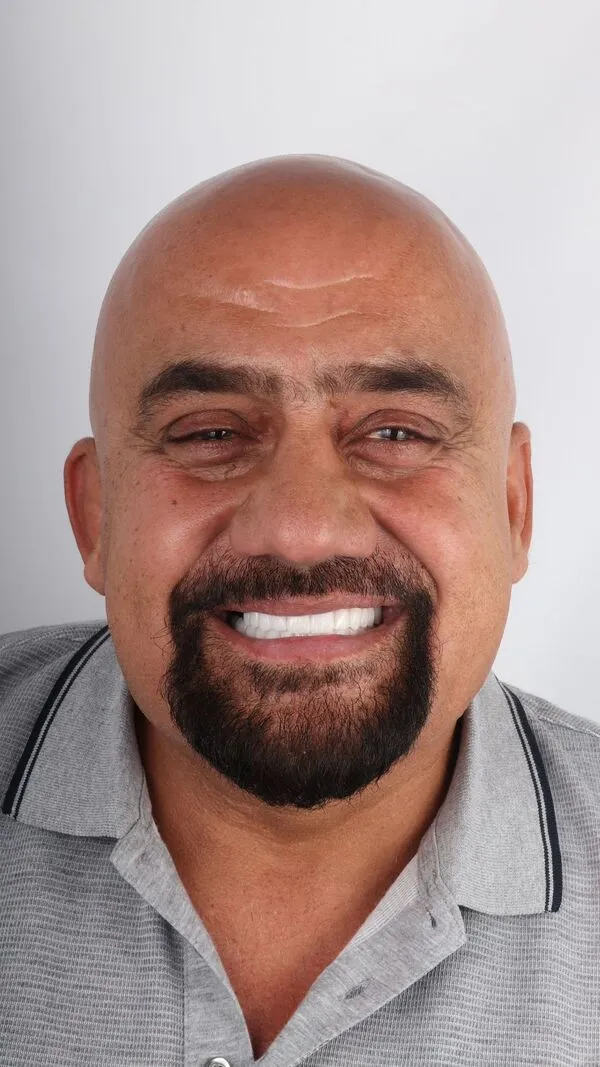


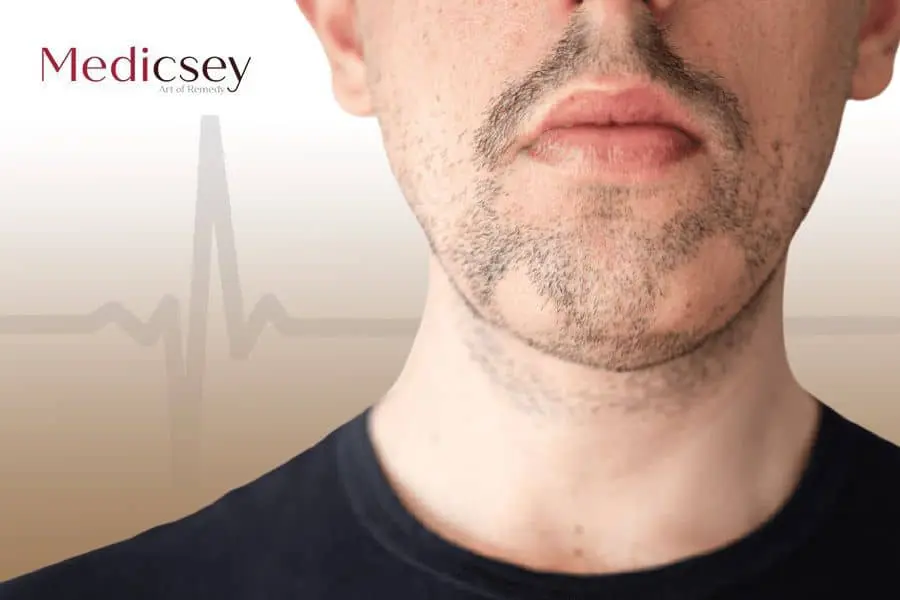
.webp)
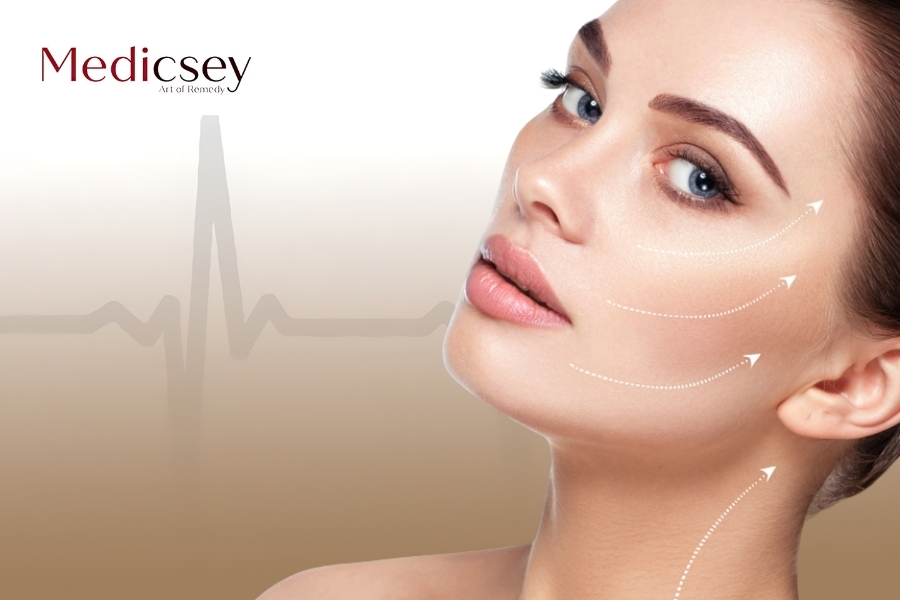
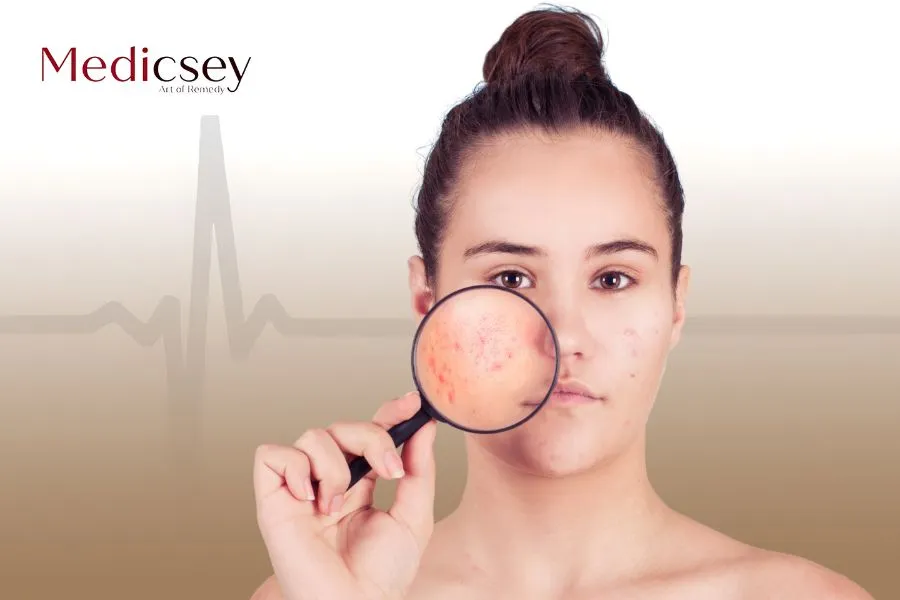
.webp)
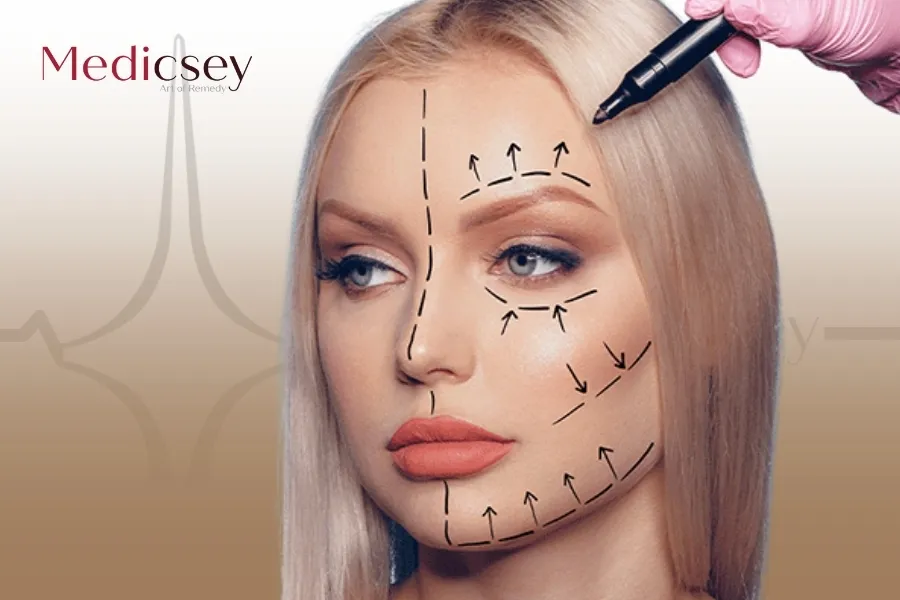

.webp)